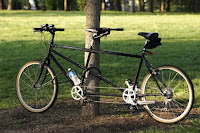I was scanning the grant opportunities at grants.gov this morning, and I noticed something that I have noticed for years, but today it struck me a bit differently. I’m accustomed to seeing hundreds of grant opportunities that don’t apply to my clients. Many are amusing (I’ve posted on Facebook about competitions for funds to save particular obscure animal species, etc.) and some are just incomprehensible. However, at a time when our economy is in trouble and people are suffering, some of the federal grant priorities seem just wrong.
Non-profit organizations that are often the last line of support for our most needy citizens are struggling for every dime these days, yet here are just a few of the hundreds of things that the government is choosing to fund instead:
Inventory of Cave Dwelling Animals in Wet Caves Grant – I think we could just go with last year’s inventory numbers, don’t you?
Azerbaijan New Media Project – This is $4,000,000 to support the development of new media and online communities in Azerbaijan. Supposedly it will help with the distribution of US aide there.
Establishing a Global System of Regional Wildlife Networks: Providing Support for Central American Wildlife – Wildlife here are so well protected that we have extra cash to be protecting wildlife in Central America?
Mexican Spotted Owl Grant – This announcement lists only “Mexican Spotted Owl” in the full description of the project. Are we buying a Mexican spotted owl? Several? Are we protecting it? Feeding it? Whatever we are doing to it, is it more important than $280,000 worth of food for the homeless?
Youth Empowerment Program in Kenya – $14,000,000 for this one, folks. I guess all of the youth in the US are empowered and well-educated, so it’s time to move on the youth of Kenya.
Decentralization Enabling Environment – I find this one to be particularly ironic. This grant provides $2,000,000 to a nongovernmental agency in Honduras to help develop the “environment necessary for decentralization of government services to the local level in order to better respond to citizen needs.” At a time when local organizations in the U.S. that do this very thing are suffering and the U.S. is going through a dramatic centralization of services and resources, we’re giving money to another country to do the opposite.
MERIDA Small Grant Program for Community Youth at Risk – This one is for community-based programs for at-risk youth in Panama. See my comment above about the Youth Empowerment Program in Kenya.
Please don’t misunderstand. I am sure that there is some value in each of these programs. What kind of human being would I be if I didn’t think doing something to or with Mexican Spotted Owls was important or that we shouldn’t have an accurate inventory of wet cave dwelling animals?
Even so, I think we need to do a much better job of prioritizing. Every family knows that you can’t have everything. Some things that you think are important have to be put aside or postponed until you can afford them in favor of funding things that are much more important.
As for the grants I just cited (and the hundreds of others like them), just whose priorities are those, anyway?
—————————————-
Click here to access two free webinars on the Basics of Program Evaluation.






